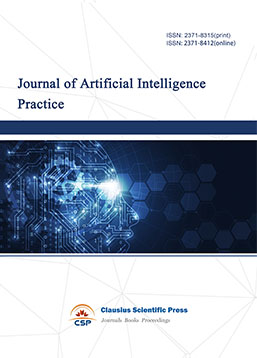Evaluation System of College Ideological and Political Education Index Based on Data Mining Algorithm
DOI: 10.23977/acss.2024.080203 | Downloads: 17 | Views: 1308
Author(s)
Bahao Li 1
Affiliation(s)
1 College of Economics, Jiujiang University, Jiujiang, Jiangxi, 332005, China
Corresponding Author
Bahao LiABSTRACT
The Intellectual and Political (IAP) education provided in colleges and universities is a significant component of higher education and is crucial to developing the socialist cause with Chinese characteristics and enhancing the IAP abilities of college students. The construction of college IAP education index assessment system based on multimodal learning type data mining algorithm can solve the current situation of the lack of college IAP education index assessment system. Therefore, this paper constructed an assessment system of college IAP education indicators based on data mining algorithm. It was a system that conformed to the requirements of the development of the times and the laws of education and had good human-computer interaction. Through the experiment, the comprehensive satisfaction score of the sample to the assessment system of college IAP teaching indicators based on data mining algorithm was about 4.19, and the comprehensive satisfaction score to the traditional assessment system of college IAP teaching indicators was about 2.87. The college IAP education index assessment system based on data mining algorithm was superior to the traditional college IAP education index assessment system, which made the assessment activities effectively play the role of summing up experience, learning lessons, promoting work improvement, establishing goal orientation, etc.
KEYWORDS
Evaluation of the Teaching of Civics, Data Mining Algorithms, Multimodal Learning, Human-computer InteractionCITE THIS PAPER
Bahao Li, Evaluation System of College Ideological and Political Education Index Based on Data Mining Algorithm. Advances in Computer, Signals and Systems (2024) Vol. 8: 12-21. DOI: http://dx.doi.org/10.23977/acss.2024.080203.
REFERENCES
[1] Gunn Andrew. "Metrics and methodologies for measuring teaching quality in higher education: developing the Teaching Excellence Framework (TEF)." Educational Review 70.2 (2018): 129-148.
[2] Cadez Simon, Vlado Dimovski, and Maja Zaman Groff. "Research, teaching and performance evaluation in academia: the salience of quality." Studies in Higher Education 42.8 (2017): 1455-1473.
[3] Grissom Jason A, and Brendan Bartanen. "Strategic retention: Principal effectiveness and teacher turnover in multiple-measure teacher evaluation systems." American Educational Research Journal 56.2 (2019): 514-555.
[4] Liu Guangxin. "The ways and methods of ideological and political education for postgraduates." Advances in Educational Technology and Psychology 5.3 (2021): 80-87.
[5] Xiao Shungen. "Teaching reform of CNC technology course under the ideological and political education." International Journal of Social Science and Education Research 2.10 (2019): 36-41.
[6] Khan Anupam, and Soumya K Ghosh. "Data mining based analysis to explore the effect of teaching on student performance." Education and Information Technologies 23.4 (2018): 1677-1697.
[7] Sorour Shaymaa E, Kazumasa Goda, and Tsunenori Mine. "Comment data mining to estimate student performance considering consecutive lessons." Journal of Educational Technology & Society 20.1 (2017): 73-86.
[8] Francis Bindhia K, and Suvanam Sasidhar Babu. "Predicting academic performance of students using a hybrid data mining approach." Journal of medical systems 43.6 (2019): 1-15.
[9] Adekitan Aderibigbe Israel, and Etinosa Noma-Osaghae. "Data mining approach to predicting the performance of first year student in a university using the admission requirements." Education and Information Technologies 24.2 (2019): 1527-1543.
[10] Bharara Sanyam, Sai Sabitha, and Abhay Bansal. "Application of learning analytics using clustering data Mining for Students' disposition analysis." Education and Information Technologies 23.2 (2018): 957-984.
[11] Parker Walter C., Sheila W. Valencia, and Jane C. Lo. "Teaching for deeper political learning: a design experiment." Journal of Curriculum Studies 50.2 (2018): 252-277.
[12] Wang Yuxia. "Ideological and political teaching model using fuzzy analytic hierarchy process based on machine learning and artificial intelligence." Journal of Intelligent & Fuzzy Systems 40.2 (2021): 3571-3583.
[13] Ramachandram Dhanesh, and Graham W. Taylor. "Deep multimodal learning: A survey on recent advances and trends." IEEE signal processing magazine 34.6 (2017): 96-108.
[14] Di Mitri Daniele. "From signals to knowledge: A conceptual model for multimodal learning analytics." Journal of Computer Assisted Learning 34.4 (2018): 338-349.
[15] Hibbeln Martin Thomas. "How is your user feeling? Inferring emotion through human-computer interaction devices." Mis Quarterly 41.1 (2017): 1-21.
| Downloads: | 42770 |
|---|---|
| Visits: | 907751 |
Sponsors, Associates, and Links
-
Power Systems Computation

-
Internet of Things (IoT) and Engineering Applications

-
Computing, Performance and Communication Systems

-
Journal of Artificial Intelligence Practice

-
Journal of Network Computing and Applications

-
Journal of Web Systems and Applications

-
Journal of Electrotechnology, Electrical Engineering and Management

-
Journal of Wireless Sensors and Sensor Networks

-
Journal of Image Processing Theory and Applications

-
Mobile Computing and Networking

-
Vehicle Power and Propulsion

-
Frontiers in Computer Vision and Pattern Recognition

-
Knowledge Discovery and Data Mining Letters

-
Big Data Analysis and Cloud Computing

-
Electrical Insulation and Dielectrics

-
Crypto and Information Security

-
Journal of Neural Information Processing

-
Collaborative and Social Computing

-
International Journal of Network and Communication Technology

-
File and Storage Technologies

-
Frontiers in Genetic and Evolutionary Computation

-
Optical Network Design and Modeling

-
Journal of Virtual Reality and Artificial Intelligence

-
Natural Language Processing and Speech Recognition

-
Journal of High-Voltage

-
Programming Languages and Operating Systems

-
Visual Communications and Image Processing

-
Journal of Systems Analysis and Integration

-
Knowledge Representation and Automated Reasoning

-
Review of Information Display Techniques

-
Data and Knowledge Engineering

-
Journal of Database Systems

-
Journal of Cluster and Grid Computing

-
Cloud and Service-Oriented Computing

-
Journal of Networking, Architecture and Storage

-
Journal of Software Engineering and Metrics

-
Visualization Techniques

-
Journal of Parallel and Distributed Processing

-
Journal of Modeling, Analysis and Simulation

-
Journal of Privacy, Trust and Security

-
Journal of Cognitive Informatics and Cognitive Computing

-
Lecture Notes on Wireless Networks and Communications

-
International Journal of Computer and Communications Security

-
Journal of Multimedia Techniques

-
Automation and Machine Learning

-
Computational Linguistics Letters

-
Journal of Computer Architecture and Design

-
Journal of Ubiquitous and Future Networks


 Download as PDF
Download as PDF